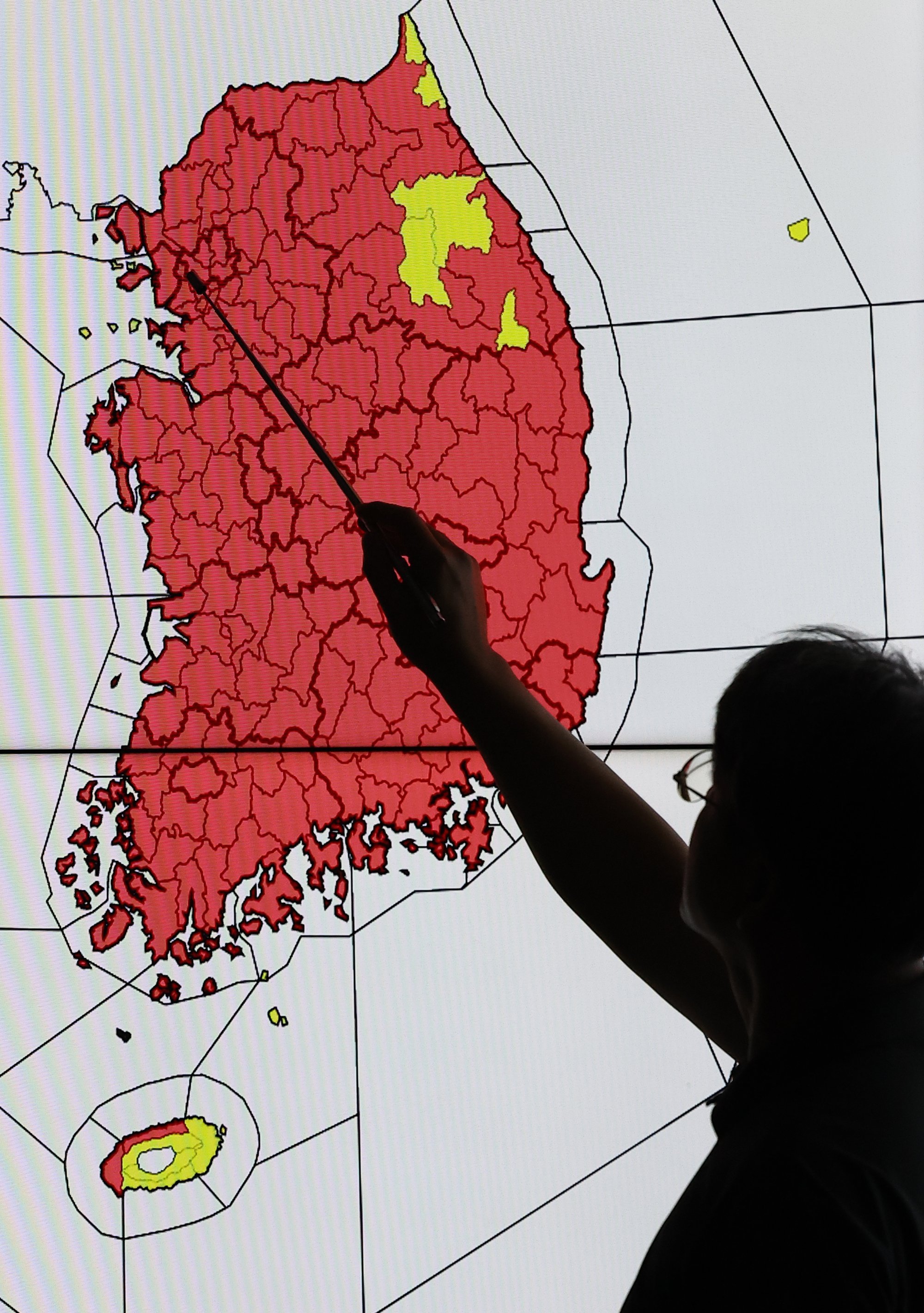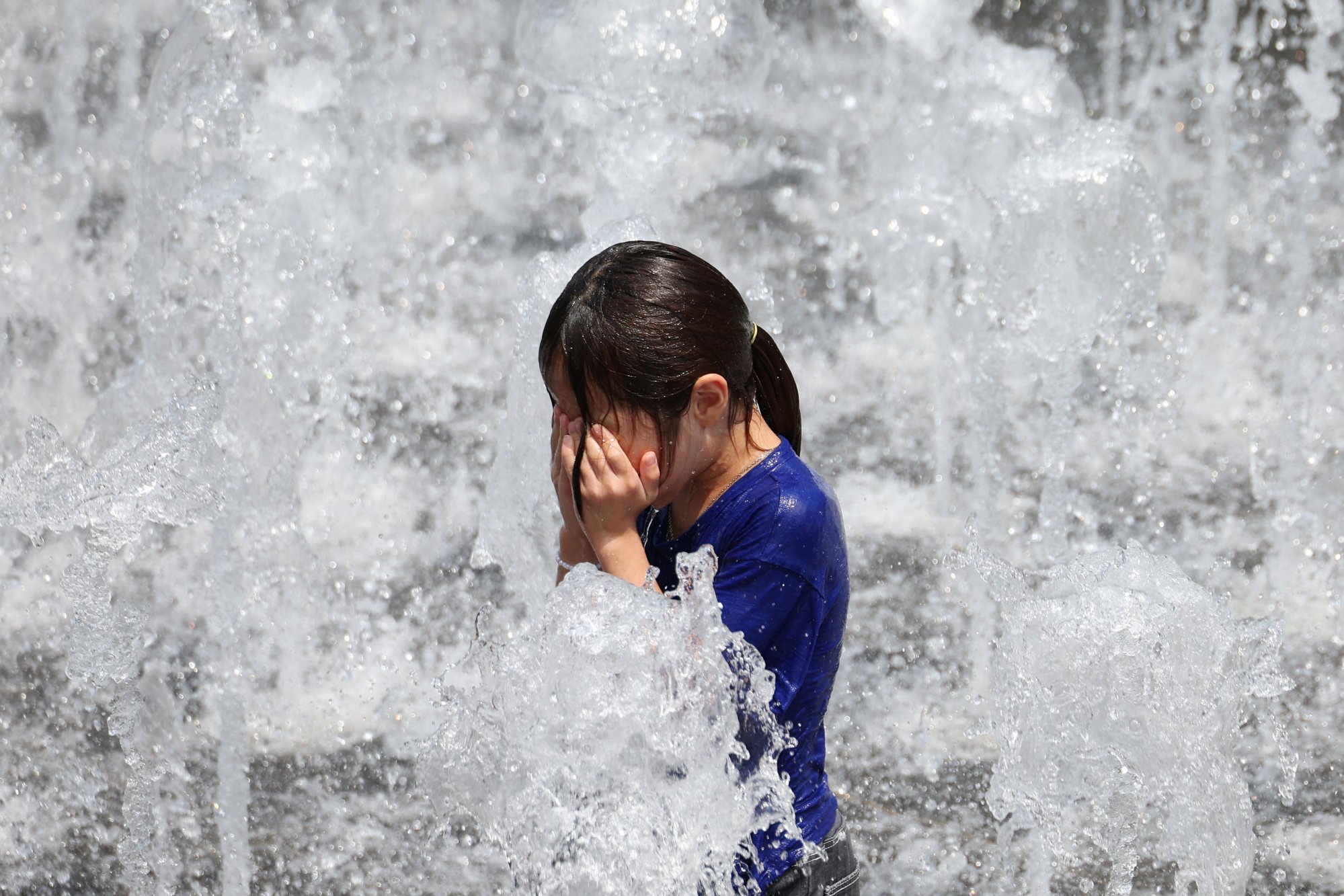Sleepless in Seoul, scorching in Tokyo: East Asia roasts under record heat
Japan records its highest temperature ever at 41.2 degrees as South Korea endures 23 nights in a row above 25 degrees

East Asia is experiencing scorching weather, with Japan logging a new high of 41.2 degrees Celsius while South Korea marked a record streak of 22 hot “tropical nights” with temperatures exceeding 25 degrees.
The alarming figures have raised fears of a devastating heatwave just around the corner for the region, especially with August typically being the hottest month of the year.
Officials in Seoul on Thursday said the lowest daily temperature during the ongoing streak had only dipped to 29.3 degrees, with a 23rd such night expected into Friday.
A so-called tropical night in the country is an official weather term denoting temperatures above 25 degrees from 6.01pm to 9am the next day.

According to The Korea Herald, the highest-ever temperature on the Korean peninsula occurred on August 1, 2018, when the rural county of Hongcheon-gun in Gangwon province recorded 41 degrees. Seoul also saw a record 39.6 degrees on the same day.
Heat-related deaths in South Korea totalled 13 so far this year – triple the figure during the same period last year, according to data from the Korea Disease Control and Prevention Agency.
Japan meanwhile observed its new temperature record on Wednesday in Tamba, in western Hyogo, surpassing the previous high of 41.1 degrees last recorded in 2020 in Hamamatsu.
In the ancient capital of Kyoto, the mercury climbed to 40 degrees for the first time since records began in the 19th century.
According to Japan Today, last summer matched the country’s hottest on record in 2023. The government has issued heatstroke warnings across multiple regions, with the current heatwave expected to continue.
Nearly 11,000 people in Japan were treated in hospital for heatstroke last week – the highest weekly figure this year – with 16 deaths reported by the Fire and Disaster Management Agency.
The Japan Times reported last week that on Thursday and Friday, Hokkaido Railway, or JR Hokkaido, suspended sections of their lines connecting Kushiro and Sapporo stations as well as Abashiri and Kamikawa in the prefecture over fears that extreme heat could warp train rails.
South Korea’s record-breaking summer heat has prompted a growing number of companies and public institutions to loosen dress codes in a bid to reduce dependence on air conditioning, according to the Korea Times.

Incheon International Airport Corp, the nation’s largest airport operator, has launched a six-week “shorts challenge” encouraging employees to wear shorts to work, with free drinks offered as a reward. The campaign is also aimed at softening hierarchical boundaries and modernising workplace culture.
Unhandled type: inline-plus-widget {“type”:”inline-plus-widget”}
Other organisations, including the Korea Electrical Safety Corp. and Seoul’s Gangdong District Office, have followed suit with similar policies. Major conglomerates such as Samsung, SK, and Hyundai Motor have also gradually relaxed office dress codes in recent years to adapt to extreme weather.
According to the United Nations’ World Meteorological Organisation, Asia is warming nearly twice as fast as the global average, largely because its vast land mass heats more rapidly than the oceans. In 2024, the continent recorded one of its hottest years on record, with average temperatures rising 1.04 degrees above the 1991–2020 baseline.
The WMO warned that continued warming posed escalating threats to food security, infrastructure and ecosystems, with marine heatwaves, shrinking glaciers and rising sea levels already exacting a heavy toll. Scientists have cautioned that breaching the 1.5-degree global warming threshold within this decade could sharply amplify climate risks across Asia – from flooding and droughts to economic losses and extreme weather events.